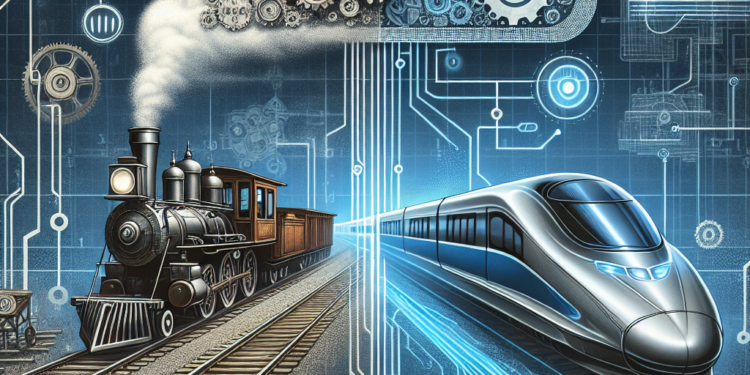The transportation industry has always been at the forefront of technological innovation, constantly evolving to meet the demands of an ever-changing world. With the rise of artificial intelligence (AI), the transportation industry has seen a revolution in the way it operates, with AI-powered solutions being implemented across various aspects of the industry to improve efficiency, safety, and customer experience.
One of the most notable areas where AI has made a significant impact in the transportation industry is in autonomous vehicles. Autonomous vehicles, or self-driving cars, are vehicles that can operate without human intervention, using AI algorithms to navigate roads, avoid obstacles, and make decisions in real-time. Companies like Tesla, Waymo, and Uber have been at the forefront of developing autonomous vehicle technology, with the goal of making roads safer and reducing the need for human drivers.
AI-powered transportation management systems have also been implemented by companies in the transportation industry to streamline operations and improve efficiency. These systems use AI algorithms to optimize routes, track shipments in real-time, and provide predictive analytics to help companies make informed decisions about their operations. By harnessing the power of AI, companies can improve their supply chain management, reduce costs, and improve customer satisfaction.
Another area where AI has made a significant impact in the transportation industry is in predictive maintenance. AI algorithms can analyze data from sensors installed in vehicles and equipment to predict when maintenance is needed, helping companies schedule maintenance before a breakdown occurs. This not only reduces downtime and prevents costly repairs but also improves safety by ensuring that vehicles are in optimal condition.
AI-powered chatbots have also been implemented by transportation companies to improve customer service and provide real-time assistance to customers. These chatbots use natural language processing to understand the needs of customers and provide relevant information and support. By leveraging AI-powered chatbots, companies can improve customer satisfaction, reduce wait times, and improve overall communication with customers.
In the air transportation industry, AI is being used to optimize flight routes, improve fuel efficiency, and enhance safety. Airlines are using AI algorithms to analyze massive amounts of data to predict weather patterns, optimize flight paths, and reduce fuel consumption. By using AI, airlines can improve their operational efficiency, reduce costs, and enhance safety for passengers and crew.
AI has also revolutionized the way cargo is tracked and monitored in the transportation industry. Companies are using AI-powered solutions to track shipments in real-time, monitor temperature-sensitive cargo, and provide predictive analytics to help companies make informed decisions about their logistics operations. By leveraging AI, companies can improve the accuracy and efficiency of their cargo tracking systems, reduce delays, and improve customer satisfaction.
Overall, the transportation industry has embraced AI as a transformative technology that has the potential to revolutionize the way the industry operates. By harnessing the power of AI, companies in the transportation industry can improve efficiency, reduce costs, enhance safety, and provide better customer experiences. As AI continues to evolve and mature, the transportation industry will continue to benefit from the amazing possibilities that AI has to offer.













